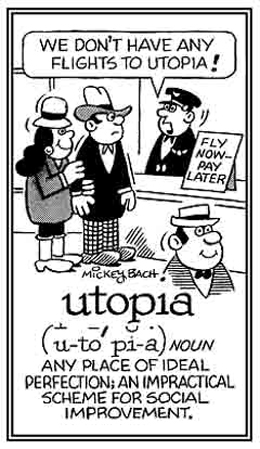topo-, top-, -topia, -topy, -topism, -topic
(Greek: place, a position, region, local, localized)
toponymist
A person who utilizes a place-name, or a name given to a person or thing, marking its place of origin.
toponymous (adjective)
1. A place name; such as, London, or Mount Everest.
2. A word derived from a place name; such as, "champagne", from "Champagne" in France; or "cashmere", from "Kashmir" in India.
2. A word derived from a place name; such as, "champagne", from "Champagne" in France; or "cashmere", from "Kashmir" in India.
toponymy (s), toponymies (pl)
1. A branch of lexicology that studies the place names of a region or a language.
2. The place names of a region or language and the study of such place names.
3. Anatomy nomenclature which refers to a region of the body rather than to its organs or structures.
2. The place names of a region or language and the study of such place names.
3. Anatomy nomenclature which refers to a region of the body rather than to its organs or structures.
topophobe
1. A dread of a certain place or locality: Vivian, afflicted with topophobia, avoided going to the grocery store around the corner because she had a very bad experience there once, so she went to the one farther away which had everything she needed.
2. A loathing of performing on stage: Wendy, suffering from topophobia when she had to play in the yearly recital at the civic center, began to sweat, had stomach aches, and fever the day before she had to play her piano pieces.
2. A loathing of performing on stage: Wendy, suffering from topophobia when she had to play in the yearly recital at the civic center, began to sweat, had stomach aches, and fever the day before she had to play her piano pieces.
topophone
A double ear trumpet for estimating the direction from which sounds proceed; especially, for the use of navigators.
topophototaxis
The directed movement or orientation of a motile organism towards the source of a light stimulus.
toposcope
An instrument for measuring the curvature of the surfaces of a contact lens.
toposcopy
1. An apparatus to project the electrical activity of the cerebral cortex of the brain as a spatial coordinate visual system.
2. A monument erected on hills, mountains or high places which indicates the direction, and usually the distance, to notable landscape features that can be seen with the naked eye from that point.
2. A monument erected on hills, mountains or high places which indicates the direction, and usually the distance, to notable landscape features that can be seen with the naked eye from that point.
topotaxis
The directed movement or orientation of a motile organism towards the spatial gradients of a stimulus; especially, the source of a stimulus.
A device for determining the sense of temperatures in different parts of a person's body: A group of students received an award and cash compensation for their work on the topothermesthesiometer which was to be used by the dermatologists who were diagnosing temperature responses among patients.
topotype
Vaccination to confer local immunity.
1. An ideal and perfect location where everyone lives in harmony and everything is functioning for an ideal life: In his academic essay, an author described Utopia as a program to reform and to make the political situation in his country wonderful and a pleasure for everyone.

© ALL rights are reserved.
Go to this Word A Day Revisited Index
Living in Hawaii from now on is Melba's idea of Utopia.
2. Etymology: from Modern Latin Utopia, literally, "nowhere"; coined by Thomas More (and used as title of his book, 1516, about an imaginary island enjoying perfect legal, social, and political systems, from Greek ou, "not" + topos, "place".It was extended to "any perfect place" in 1613.

Go to this Word A Day Revisited Index
so you can see more of Mickey Bach's cartoons.
Utopian (yoo TOH pee uhn) (adjective)
1. Belonging to or characteristic of an ideal perfect state or place: "Having Utopian ideas may be admirable but it is usually impracticable in real life."
"Manfred proposed a utopian approach for the needed social and political reforms in his community."
2. Etymology: Utopian originally meant "having no known location" (1609); sense of "impossibly visionary, ideal" is from 1621; as a noun meaning "visionary idealist" it is first recorded in about 1873.

